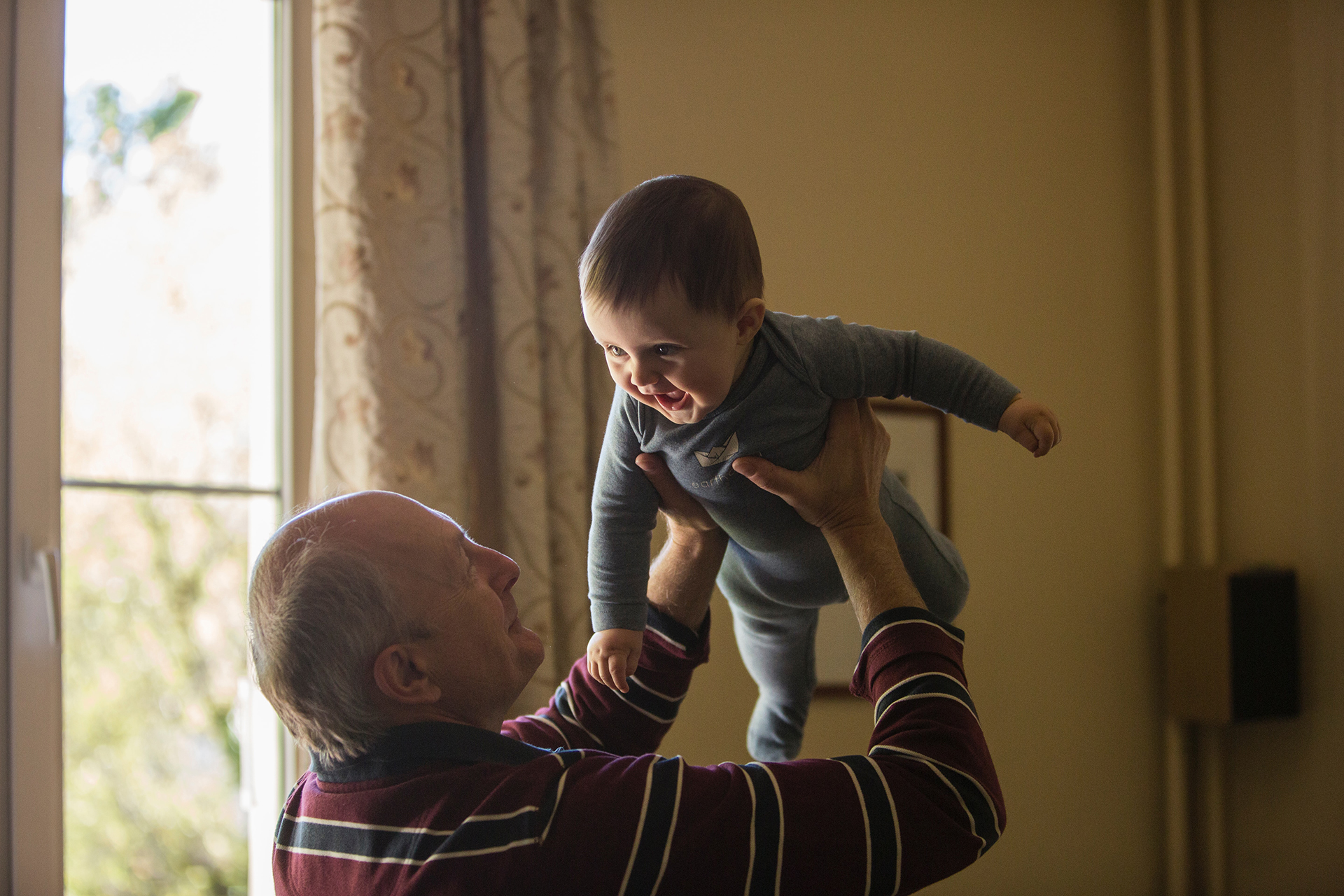Phoenix Grandparent’s Rights Attorney
Grandparents can assume care, custody, and control of their grandchildren and relatives in a variety of ways in Arizona. It is commonly referred to by people as Grandparent Rights. Grandparents can adopt their grandchildren in private adoptions, they can adopt or gain guardianship of their grandchildren where DCS or CPS is involved in their lives, they can obtain guardianship by the consent of the parents when DCS is not involved, and they can seek what is referred to as Third Party Rights in certain circumstances through the family court. All of these require a lot of paperwork and a lot of documentation in order to finalize them.
Justin and the team at the Law Office of Justin Fernstrom PLLC have years of experience assisting grandparents through these difficult and emotional processes and we are keenly aware of what is at stake in these matters. We handle every case with compassion and care and make sure that critical steps in the situation you find yourself in are completed in a timely manner.
What is the Process for Grandparents Seeking Custody or Visitation with their Grandchildren?
Establishing grandparents’ rights in Arizona is different than the adoption process. In some cases, a grandparent may not be in a position to adopt or have custody of their grandchildren but may want to seek visitation or contact with their grandchild. If DCS (commonly referred to as CPS) is involved you can do this through the juvenile court and if they are not involved you typically do this through the family court.
If grandparents find themselves in a situation where they have custody of their grandchildren and need legal authority to enroll them in school or seek medical attention, they can petition the juvenile court for guardianship. These guardianships are consent-based so if a parent appears at the guardianship hearing and objects, the court cannot grant that guardianship in that instance. If there are safety concerns, the court will often appoint a best interest attorney, referred to as a Guardian ad Litem, to determine if there are any concerns that would warrant DCS becoming involved to protect the child from abuse or neglect and to investigate the reasons why guardianship is being sought from the outset.
If there is no response to the petition because the child has been abandoned, the hearing can proceed without consent from the parent or parents but before the guardianship can be granted, the court does require that an effort be made to locate and provide notice to the parents that there is a pending court proceeding. If the parent or parents attend the hearing and decide to consent to the grandparent’s petition to be guardians, then the hearing can proceed to the next steps of assigning authority to care for the children.
One issue that we routinely are retained to assist with are situations where DCS/CPS has taken custody of the grandchildren and placed them in a foster home or with another relative, and are refusing to consider the grandparents as an option for one reason or another. It is often the case that when DCS/CPS makes a custodial decision and picks who they want to care for the child while they are involved, they usually never consider anyone else after their initial determination has been made. It is also common that if DCS/CPS rules you out as an option for one reason or another, i.e. old criminal records, age, home situation, etc., it is a “one strike and you are out” rule. Getting them to reconsider without legal assistance is nearly impossible.
The judge on the case has the final say on who can be approved to care for children while there is an open DCS/CPS case. The issue is that DCS often makes these decisions outside of the court proceedings. Unless you have an experienced attorney to help you get in front of the judge, DCS/CPS often plays the role of the judge, jury, and executioner until the court can be made aware of the situation and direct DCS/CPS to consider any alternatives. DCS/CPS holds an awesome power and authority and without someone to assist you in trying to reign them in and seek a judicial determination rather than a DCS/CPS determination, you will often feel lost, frustrated, and angry at the system itself.
How Can I Hire an Attorney to Help Establish Grandparent Visitation Rights and Custody?
While you may go this road alone, having the experience of someone who has sat on all sides of the table supporting you, presenting your case, and defending you in situations where DCS/CPS has ruled you out is not only comforting but can also turn the tides more in your favor. As with most things in the legal system, there is always more to it than the self-help forms that the courts give you when representing yourself. If you want it done right and done right the first time, let us help you. In the end, children are not a commodity – they are priceless, and often these cases can lead to very permanent determinations with irreversible consequences.
When you have Justin and his skilled team at your side, you will have the support you need to present your best case to the court and increase your odds of success.
What Are the Third Party / Grandparent Visitation Laws in Arizona When DCS is Not Involved and You Find Yourself in Family Court?
In the state of Arizona, there are laws that allow grandparents to petition for the right to visit their grandchild or grandchildren. The court will often support the exercise of these rights because of the benefits to the child of being in contact with their grandparents. Often, these requests are granted because of specific changes of circumstance in the child’s life, such as:
- One legal parent has been deceased or has been “missing” for three months or more
- The child’s legal parents were not or are not married
- There has been a dissolution of the marriage or legal separation of the parents
What Are Grandparents’ Rights?
Grandparents in the state of Arizona can receive court-ordered visitation rights if they can prove that the parents are not caring for the child, or are otherwise “unfit.” Custodial law always takes into consideration the benefits of children maintaining a bond with their biological family, which includes their grandparents.
Grandparents’ rights can allow a child to benefit from a more stable home life, and they can ensure that a child is able to get the support they need to thrive despite potential problems in the home of their parents. The team at the Law Office of Justin Fernstrom PLLC is aware of the many benefits of grandparents having protected access to their grandchildren and we will always fight for what our clients believe are in the best interests of the children in these cases.
What is Best Interest?
In cases involving children and custody, the court is charged with ensuring that the best interests of the children are being met. In making that determination the court will consider information from many sources. The court will take the opinion of the legal parents into consideration when determining what is best for the child. There are other factors that are used to determine what is considered to be in the best interest of the child as well, such as:
- The historical relationship between the grandparents and the child
- The motivation of the grandparents for asking for custody or visitation rights
- The amount of time that is being requested in the case of visitation and whether or not this time will negatively impact the child’s schedule and other activities
- In the case where both of the child’s parents are deceased, there is the consideration for the benefit of the child maintaining a close bond with the family as a whole
Do Grandparent Rights Include Custody in the State of Arizona?
Grandparents’ rights in the state of Arizona do not include custody by default. In order for grandparents to seek and gain custody of a grandchild, they need to be able to prove that the parents are not fit to care for the child. The grandparent’s rights laws allow the grandparents to have regular contact with the child so that the welfare of the child can be verified. If a negative change in circumstance for the child should take place, their grandparents can then hire a lawyer to help them to seek custody of the child in question. This is referred to as an in loco parentis, where you seek a court order that allows you to stand “in the place of the parent.
What if the Parent Refuses to Follow Court-Ordered Visitations?
If parents refuse to comply with court-ordered visitations with grandparents, there are ways to remedy those issues. Parents who are not compliant with court orders related to their children spending time with grandparents could face fines and even jail time. Other more extreme outcomes of non-compliance with court-ordered visitation could be the loss of custody of the child.
Refusal to allow grandparents and other family members to see a child can be very difficult for the child in question and can lead to safety issues in some cases. Any court-ordered visitation must be observed, regardless of the feelings of the parties involved. Refusal to observe court orders is a violation of the law.
How Can a Skilled Grandparents’ Rights Attorney Help?
A skilled grandparent’s rights lawyer like Justin and his team can help you to navigate the process of securing court-ordered visitation, as well as custodial rights over grandchildren. When grandparents take action to gain rights to their grandchildren, they make a meaningful difference in the lives of those children and prevent the children from being in undesirable and unhealthy situations.
Hiring the right lawyer can make the process of asserting and claiming grandparents’ rights much easier. For children that are involved in situations that could be detrimental to their safety or well-being, this is the crucial first step toward ensuring their safety and their ability to thrive.
At the Law Office of Justin Fernstrom PLLC, we take these cases very seriously because we know what is at stake. We seek to offer compassionate and compelling legal support for our clients. Our expertise in Arizona custodial law makes us uniquely positioned to help you preserve your grandparent’s rights along with the safety and well-being of the grandchildren that you love. Rest assured, your case matters to us and we will remain by your side fighting to get the best possible outcome in your case.
Seek the Support of an Experienced Lawyer for Your Case
If you need to obtain and assert your grandparent’s rights or want to seek custody of your grandchildren, the team at the Law Office of Justin Fernstrom PLLC can help. We will be happy to discuss the details of your case and offer you a roadmap to the result you want. Don’t travel down this difficult road alone, let us help you take care of your grandchildren. Contact us today to schedule a consultation to learn more about what grandparents’ rights look like in your case.


